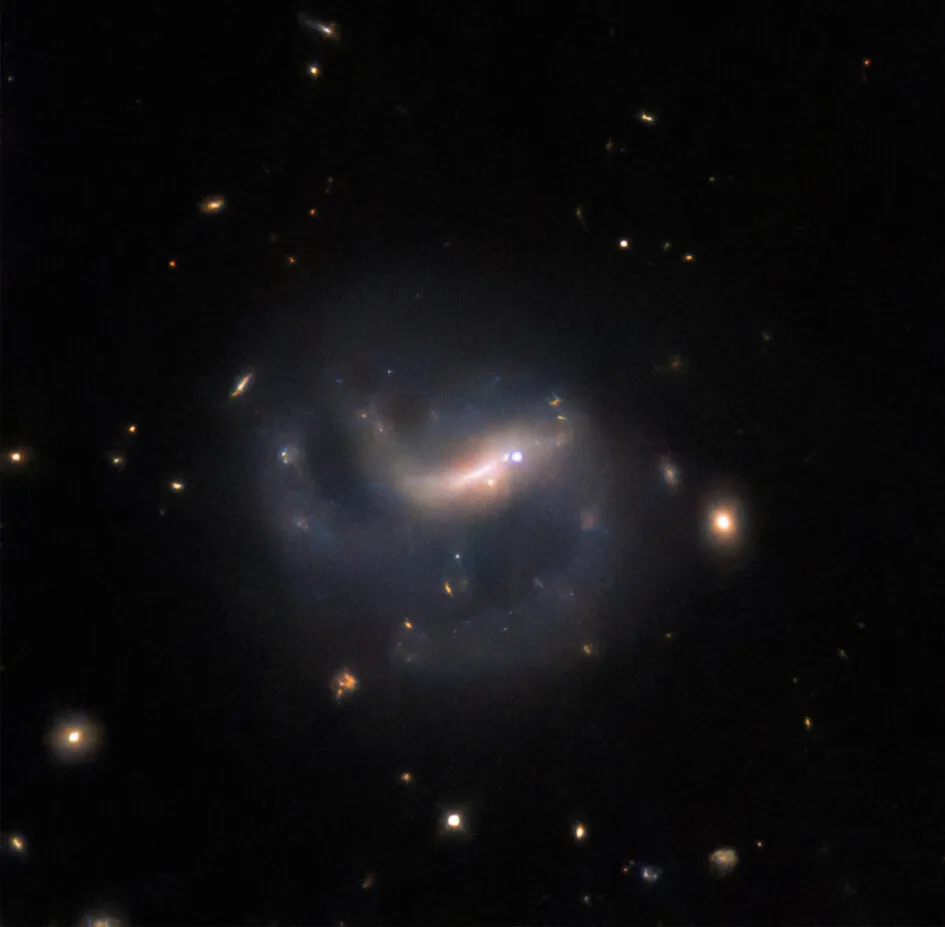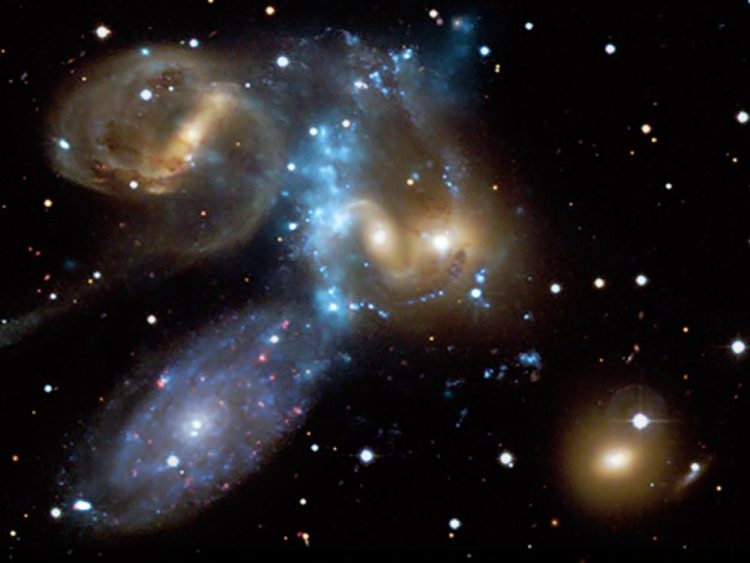Introduction
The Hubble Space Telescope has been a beacon of discovery in the cosmos since its launch in 1990. Among its myriad contributions, one of the most fascinating areas of study has been supernovae—stellar explosions that are among the most energetic events in the universe. This article delves into Hubble’s observations of a supernova, exploring its significance, the science behind these stellar explosions, and the broader implications for our understanding of the universe.
The Hubble Space Telescope: A Brief Overview
Launched on April 24, 1990, the Hubble Space Telescope (HST) was a collaboration between NASA and the European Space Agency (ESA). Positioned in low Earth orbit, Hubble has provided unprecedented views of the universe, free from the distortions of Earth’s atmosphere. Its suite of instruments, including advanced cameras and spectrographs, has enabled astronomers to observe distant galaxies, star clusters, and cosmic phenomena with exceptional clarity.
Supernovae: Understanding the Basics
Supernovae are explosive events that signify the death of a star. They are categorized into two main types based on their progenitor stars and the mechanisms behind their explosions:
1. Type Ia Supernovae
Type Ia supernovae occur in binary star systems where a white dwarf star accretes material from a companion star. When the white dwarf reaches a critical mass, it undergoes a thermonuclear explosion, resulting in a supernova. These supernovae are characterized by their uniform luminosity and are used as standard candles to measure cosmic distances.
2. Type II Supernovae
Type II supernovae result from the collapse of massive stars with at least eight times the mass of the Sun. When such a star exhausts its nuclear fuel, its core collapses under gravity, leading to a violent explosion that ejects the outer layers into space. Type II supernovae are distinguished by their hydrogen-rich spectra and are crucial for understanding stellar evolution and the synthesis of heavy elements.
Hubble’s Role in Observing Supernovae
Hubble has played a pivotal role in observing and analyzing supernovae. Its high-resolution images and spectroscopic data have provided insights into the nature of these explosions, the distribution of elements, and the dynamics of the expanding debris. Here’s an in-depth look at Hubble’s observations of a specific supernova:
Case Study: Supernova 2014J
In January 2014, Hubble captured stunning images of Supernova 2014J, one of the closest Type Ia supernovae observed in decades. This supernova occurred in the galaxy M82, approximately 11.4 million light-years from Earth. Hubble’s observations offered a unique opportunity to study the details of the explosion and its aftermath.
1. The Discovery
Supernova 2014J was first detected by amateur astronomers and quickly confirmed by professional astronomers. Its relative proximity to Earth made it a prime target for detailed study using Hubble’s capabilities. The explosion was visible in the ultraviolet and visible light spectra, providing valuable data on the supernova’s properties.
2. Hubble’s Observations
Hubble’s Advanced Camera for Surveys (ACS) and the Wide Field Camera 3 (WFC3) captured high-resolution images of Supernova 2014J over several months. The observations revealed intricate details of the explosion, including:
- The Expansion of the Supernova: Hubble’s images showed the expanding shell of debris from the explosion, providing insights into the dynamics of the supernova and the rate at which it was dispersing material into space.
- The Light Curve: The light curve, which tracks the brightness of the supernova over time, revealed the supernova’s peak brightness and the subsequent decline. This information helps astronomers understand the energy output and the mechanisms driving the explosion.
- The Composition of Ejecta: Spectroscopic data from Hubble allowed scientists to analyze the chemical composition of the ejected material. This includes elements such as iron, nickel, and silicon, which are synthesized in the supernova and spread throughout the galaxy.

Significance of Hubble’s Supernova Observations
The detailed observations of Supernova 2014J and other supernovae have profound implications for our understanding of the universe:
1. Measuring Cosmic Distances
Type Ia supernovae serve as standard candles for measuring cosmic distances due to their consistent luminosity. By observing these supernovae, astronomers can determine the rate of expansion of the universe and refine estimates of its age and size.
2. Understanding Stellar Evolution
Supernovae are crucial for studying the life cycles of stars. Observations of these explosions provide insights into the end stages of stellar evolution, the processes that lead to their death, and the role of supernovae in enriching the interstellar medium with heavy elements.
3. Investigating the Synthesis of Elements
Supernovae are key sites for the synthesis of heavy elements such as iron, nickel, and calcium. By analyzing the composition of supernova remnants, scientists can trace the origin of these elements and understand their distribution throughout the galaxy.
4. Probing the Interstellar Medium
The expanding shock waves from supernovae interact with the surrounding interstellar medium, influencing its density and composition. Studying these interactions helps astronomers understand the dynamics of the interstellar medium and its role in the formation of new stars and planetary systems.
The Broader Impact of Supernova Research
Research on supernovae extends beyond individual events and has broader implications for astrophysics:
1. Dark Energy and the Accelerating Universe
The discovery of dark energy and the accelerated expansion of the universe was partly due to observations of Type Ia supernovae. Hubble’s continued study of these supernovae helps refine our understanding of dark energy and its impact on the universe’s expansion.
2. Galactic Evolution
Supernovae play a crucial role in the evolution of galaxies by dispersing heavy elements and influencing star formation. Understanding supernovae provides insights into the processes that shape galaxies and the formation of cosmic structures.
3. Cosmic Nucleosynthesis
The study of supernovae contributes to our knowledge of cosmic nucleosynthesis—the process by which elements are formed in the universe. This knowledge helps us understand the chemical evolution of the universe and the origins of elements found on Earth and throughout the cosmos.
Future Directions and Observations
The future of supernova research holds exciting possibilities:
1. Next-Generation Telescopes
Upcoming telescopes, such as the James Webb Space Telescope (JWST) and the Extremely Large Telescope (ELT), will provide even more detailed observations of supernovae and their remnants. These next-generation instruments will enhance our ability to study distant supernovae and their impact on the universe.
2. Multi-Wavelength Observations
Combining observations across different wavelengths (optical, infrared, X-ray, etc.) will provide a more comprehensive view of supernovae and their interactions with their environment. This approach will improve our understanding of the physics of supernova explosions and their aftermath.
3. Advanced Theoretical Models
Continued development of theoretical models and simulations will complement observational data, providing deeper insights into the mechanisms driving supernovae and their role in cosmic evolution.
Conclusion
Hubble’s observations of supernovae have revolutionized our understanding of these spectacular cosmic events. From the detailed study of Supernova 2014J to the broader implications for cosmic distances, stellar evolution, and element synthesis, Hubble has provided invaluable insights into the nature of supernovae and their impact on the universe.
As we look to the future, continued research and advanced observational technologies promise to enhance our knowledge of supernovae and their role in shaping the cosmos. Hubble’s legacy, combined with the advancements of future missions, will continue to illuminate the mysteries of the universe and inspire new discoveries in the field of astrophysics.











































Discussion about this post